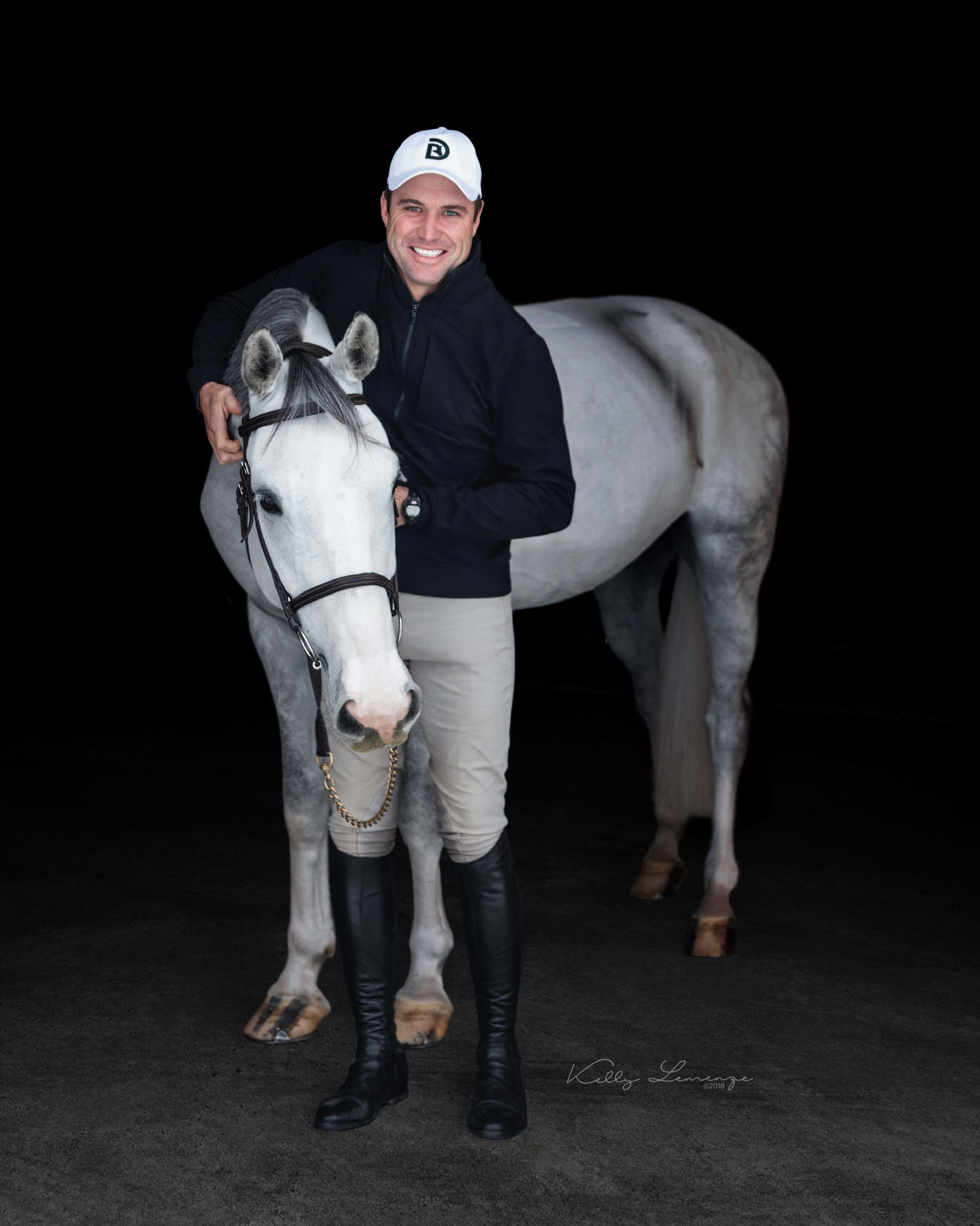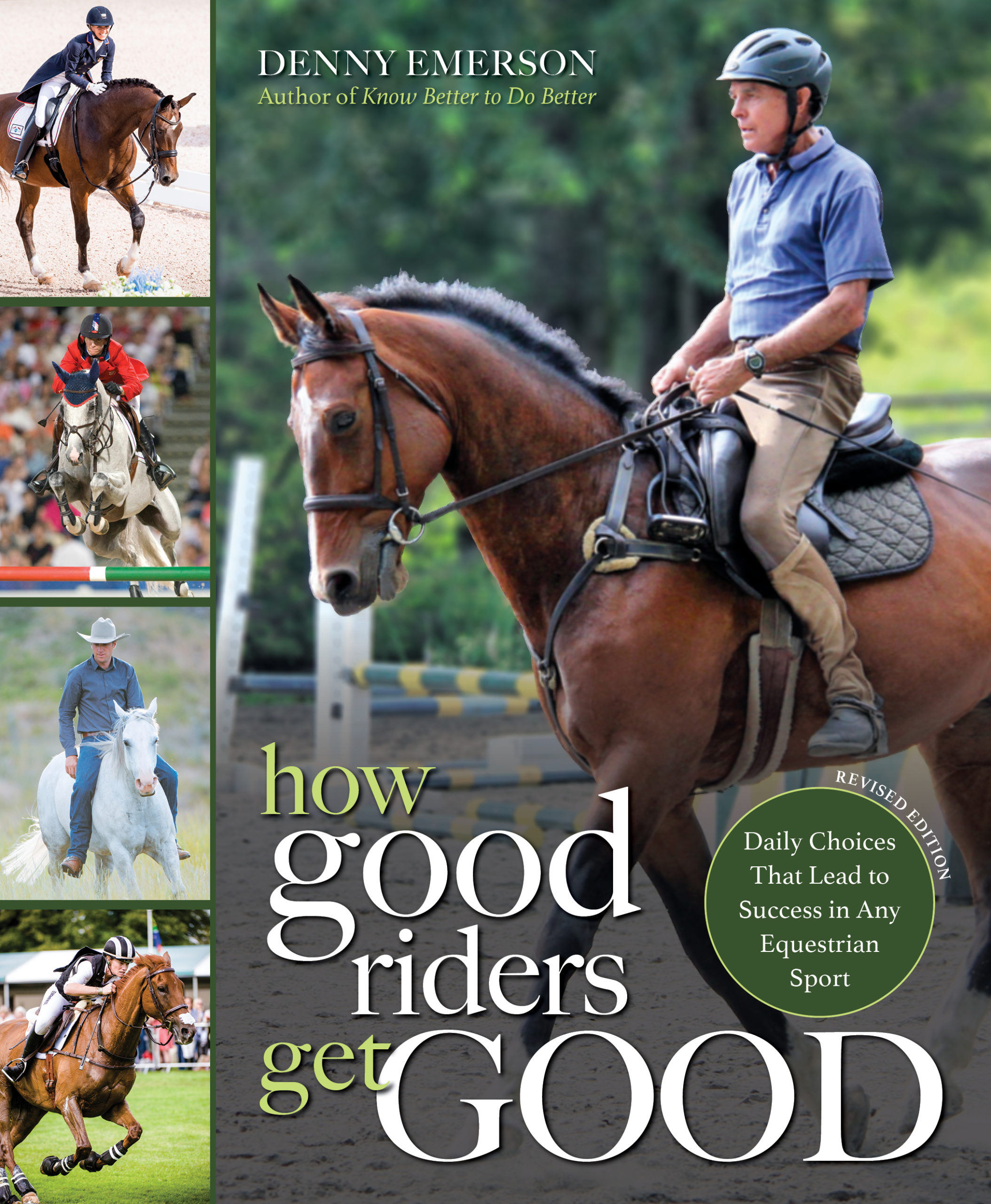This excerpt from “How Good Riders Get Good” by Denny Emerson is reprinted with permission from Trafalgar Square Books (www.horseandriderbooks.com).
In this excerpt from Denny Emerson’s book How Good Riders Get Good, WEG team gold winner Devin Ryan tells us why he thinks he has found success in show jumping.
Devin Ryan and Eddie Blue—the horse he found as a green four-year-old—won team gold at the 2018 World Equestrian Games in Tryon, North Carolina, and a silver medal at the 2018 World Cup Final in Paris. The two were members of the bronze-medal-winning team in the FEI Jumping Nations Cup CSIO5* at CSIO Sopot (Poland) that year, and as part of the U.S. team at CHIO Aachen (Germany), they jumped double clear in the Mercedes-Benz Nations Cup.
Life circumstances:
Born and raised in New Jersey, some of my earliest experiences with horses took place at a farm in Sussex County that my grandfather owned. I started riding under the tutelage of Dolores Hunt. A year later, I began competing in the United States
Pony Club Tetrathlon events. Through my experiences eventing in Pony Club, I took a great liking to show jumping and took a position as a working student for George Morris, Chris Kappler, and Jeff Cook at Hunterdon.

Photo by Kelly Lemenze
Hooked on horses when:
I was thirteen years old when I discovered my love for horses.
I think I got good because:
During my time working at Hunterdon, I gained a strong understanding of the show jumping industry, and most importantly, how having a program is essential for success. In order to bring out the best in both riders and in horses, at any level of the sport, it is vital to have a consistent program. George, Chris, and Jeff made it very clear to me that attention to detail is also essential for creating the ideal program.
From 2002 to 2003 I worked for a horse dealer and breeder named Alan Waldman in Holland. At “Stal Waldman” my eyes were opened to both a European style of horse showing, as well as how farms start and develop young horses. In the States, my riding opportunities consisted of exercising “made” show horses, and I had never ridden a young unbroken horse. I quickly learned at Stal Waldman that “getting the job done” was my most important skill. Getting the job done was based on feeling, not forcing the horse to complete the task. You get much more out of a horse physically and mentally with feeling, which in turn gains a horse’s confidence and trust. Alan imbedded that philosophy in me while developing young horses.
For most of my career I have not had the means to purchase horses that are ready to step into big classes. In order to jump at a higher level, I have had to develop young horses from the beginning of their careers up to their highest potentials. Having experiences with green horses helped me develop my “feel” much faster than if I had ridden made horses. The first bigger classes that I competed in were on horses that had never competed at that level either—the feeling and trust that I cultivated during younger years of development played an enormous role in my success and ability to navigate a more difficult level of the sport for the first time.
My most important advice:
Your horse is your best teacher. Sometimes the most difficult horses have the most to give back to you, and giving up should never be an option. Read your horse’s signs and signals, and by doing so, you can earn his trust and build a relationship that will bring you closer to your goals. You won’t always have your dream horse, but it is important to ride as much as you can, no matter the quality or ability of your mount.
Every horse teaches you something, and passing up an opportunity to ride and listen to your horse might be passing up learning something that could help you move forward in your career.
 Pick up your copy of How Good Riders Get Good from Trafalgar Square books HERE.
Pick up your copy of How Good Riders Get Good from Trafalgar Square books HERE.
